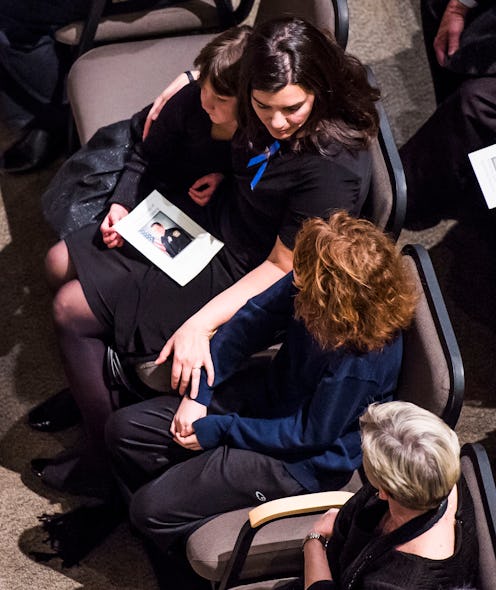News
Planned Parenthood Attack Victims Speak Out
Victims of the November shooting at a Planned Parenthood clinic in Colorado Springs, Colorado, said in a lawsuit filed Friday, May 20, that Planned Parenthood should have prevented the attacks with more security measures. The lawsuit claimed that given the history of violence threatened and perpetrated against Planned Parenthood and other abortion providers that the attacks should have been predicted and prevented.
In the lawsuit filed by Ashley Stewart for the death of her husband and father of her child, Ke'Arre Stewart, she alleged that the organization should have both expected violence and taken greater measures to prevent it on their premises. Stewart argued that Planned Parenthood locations "have been the targets of thousands of verbal threats and have been the actual targets of well over 300 acts of direct violence, including arson, bombings, approximately a dozen murders and butyric acid attacks."
According to the National Abortion Federation (NAF), an abortion advocacy group, violence against abortion practitioners and clinics has a long history. Their site tracks violence based on the type of attack, from murders and shootings to anthrax, acid and bombings. To date, 11 people have been murdered in anti-abortion shootings since abortion was legalized in 1973, from individual clinicians to bystanders as in the Colorado Springs shootings.
But that's just the tip of the iceberg: NAF lists a whopping 229 reported arsons and bombings of clinics; four arsons were reported in 2015 after anti-abortion activists released graphic videos and allegedly falsified undercover videos aimed at discrediting Planned Parenthood.
Stewart told Courthouse News Service that the Colorado Springs clinic should have had more secure points of entry and more emergency training for employees faced with violence. Paired with the history of anti-abortion violence and the most recent spate of attacks, Stewart's claims couldn't be more timely; a recent NAF report found that abortion providers were targeted more last year than ever before.
"In my more than 20 years with NAF, I have not seen such an escalation of hate speech, threats, and calls to action against abortion providers," Vicki Saporta, president and CEO of NAF, said in a statement on the report.
The implications in Stewart's lawsuit against Planned Parenthood are clear: Planned Parenthood and other abortion providers should take responsibility for the safety of their patients and patrons while on their premises. But what of the politics and rhetoric that spawn anti-abortion violence? Here, the solutions seem murkier.
After his arrest, Robert Lewis Dear, the alleged assailant in the Nov. 27, 2015 shooting at the Colorado Springs clinic, reportedly made a statement that included the phrase "no more baby parts" when authorities interviewed him after his arrest. This now-famous quote is regarded as the impetus for a ruling that found Dear incompetent to stand trial.
While Dear may indeed have been too mentally ill to be responsible for his actions, a study by researchers at the University of Missouri offered credence to the idea that extremist beliefs are often mistaken for psychosis and should be evaluated differently. Moreover, reports of mental illness are often used when describing perpetrators of mass shootings and other violent tragedies based in extreme beliefs, and some believe that reported mental illness excuses shooters, like Charleston, South Carolina, church shooter Dylann Roof, from facing justice.
After the Colorado Springs shootings, writer Jessica Valenti called for a dramatic reframing of the conversations surrounding abortion and those opposed to it. Valenti said that the violent, alarmist rhetoric used by anti-abortion activists contributes to a "culture of hate" around Planned Parenthood: "We must demand that the violent radical language and lies about abortion stop."
On Monday, a Sarasota, Florida, Planned Parenthood was evacuated to investigate potential chemical fumes which were later found to be uncapped cleaning supplies on a heating unit. In that case, it was a false alarm, but will the next clinic be as lucky?
